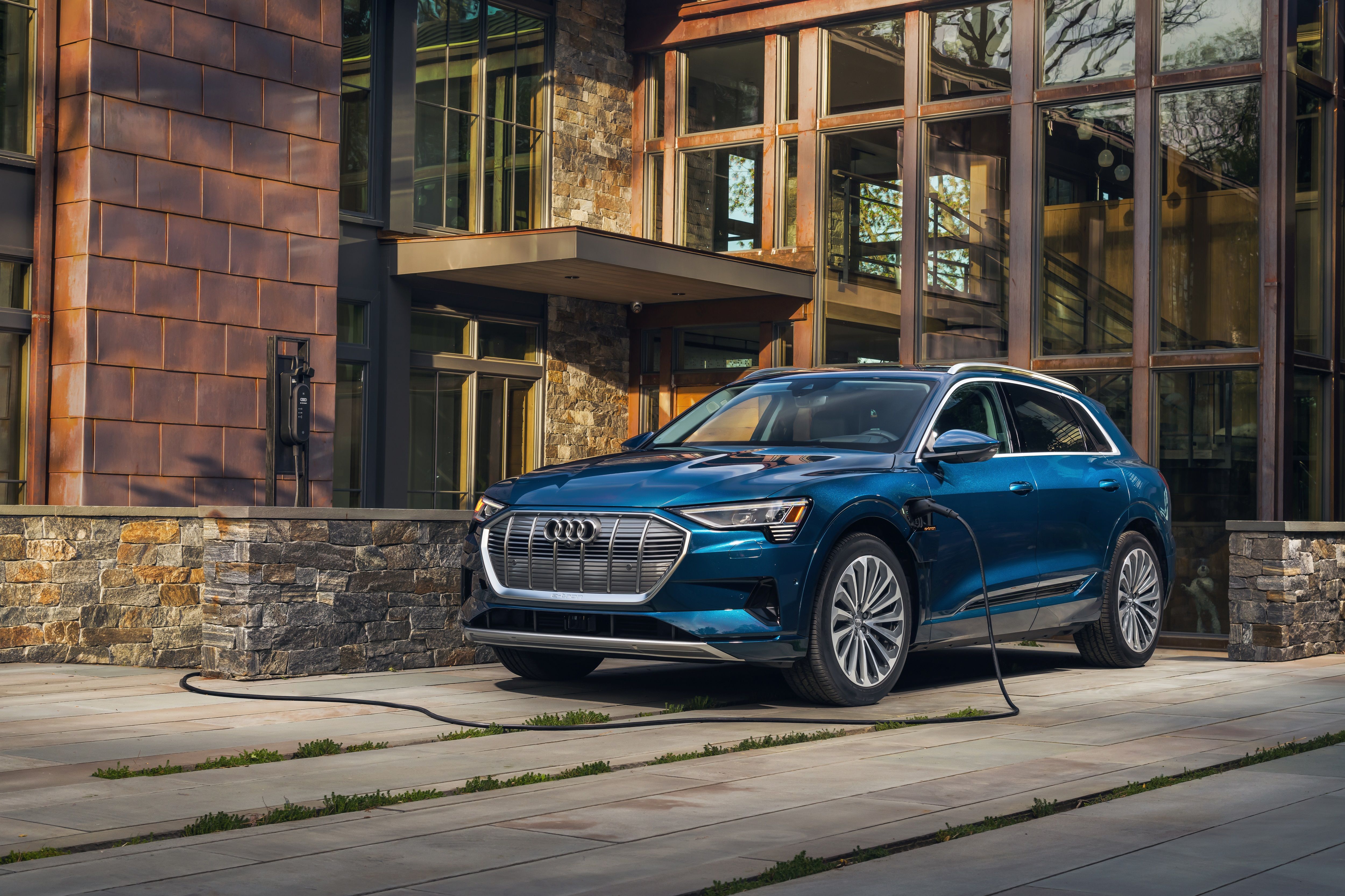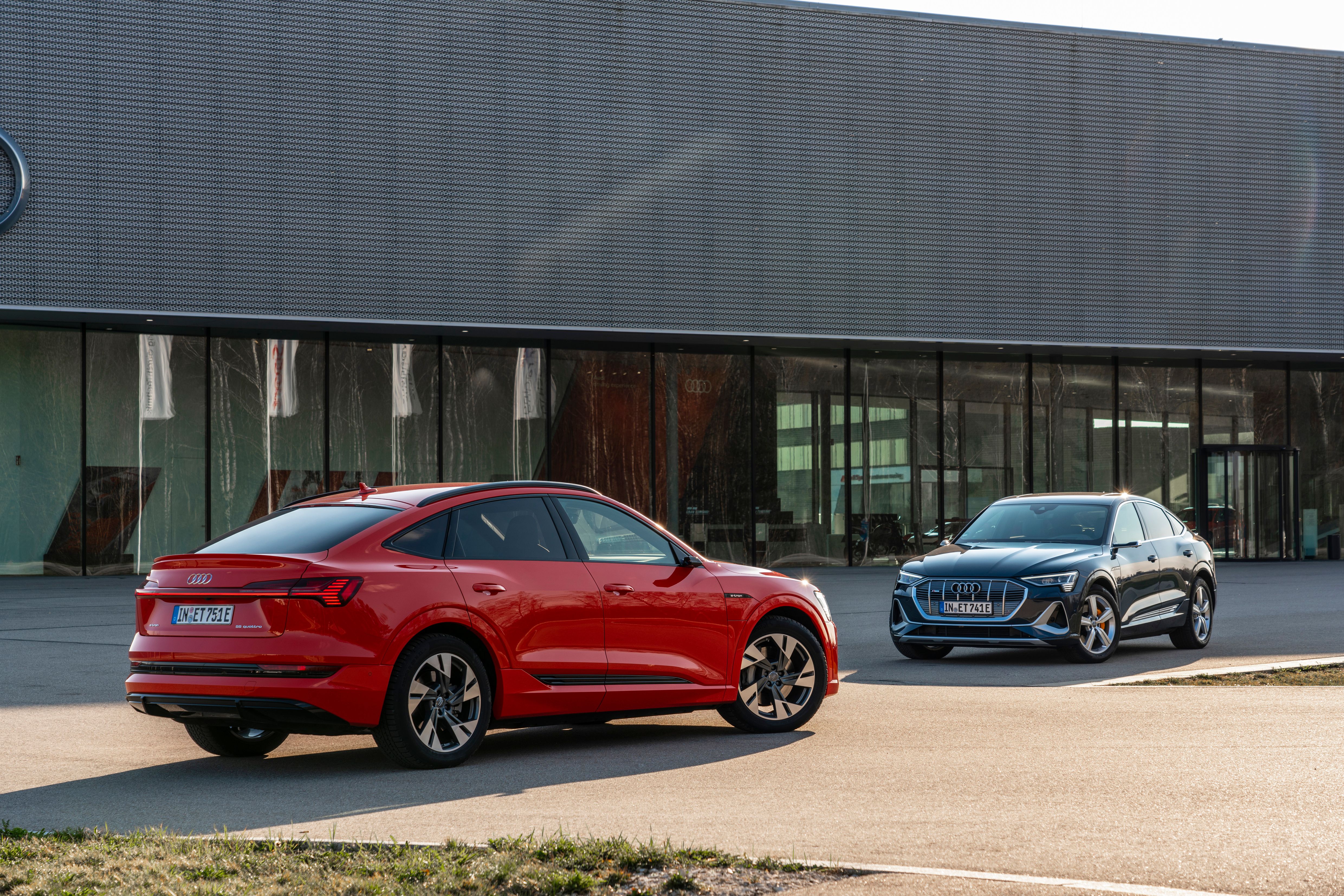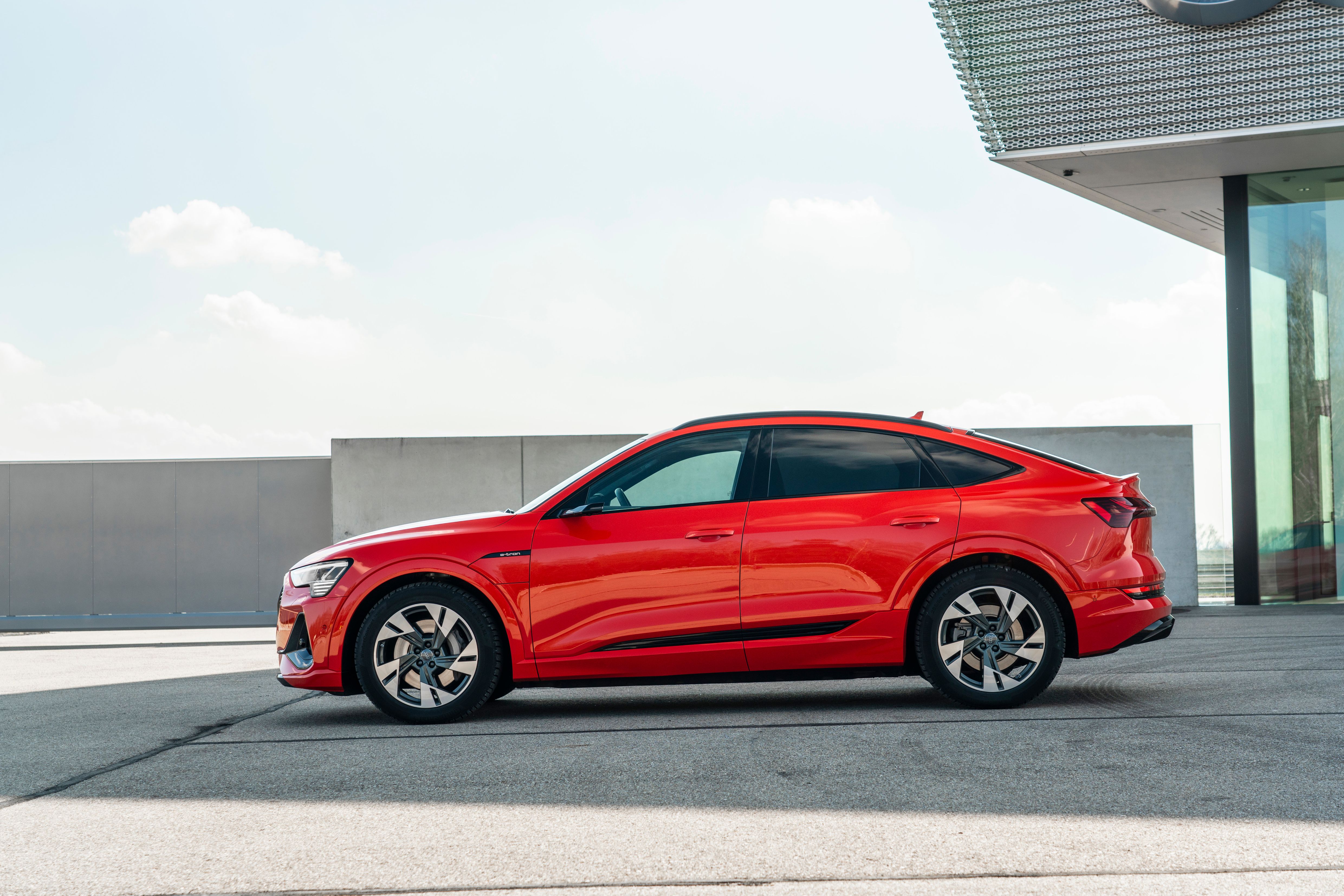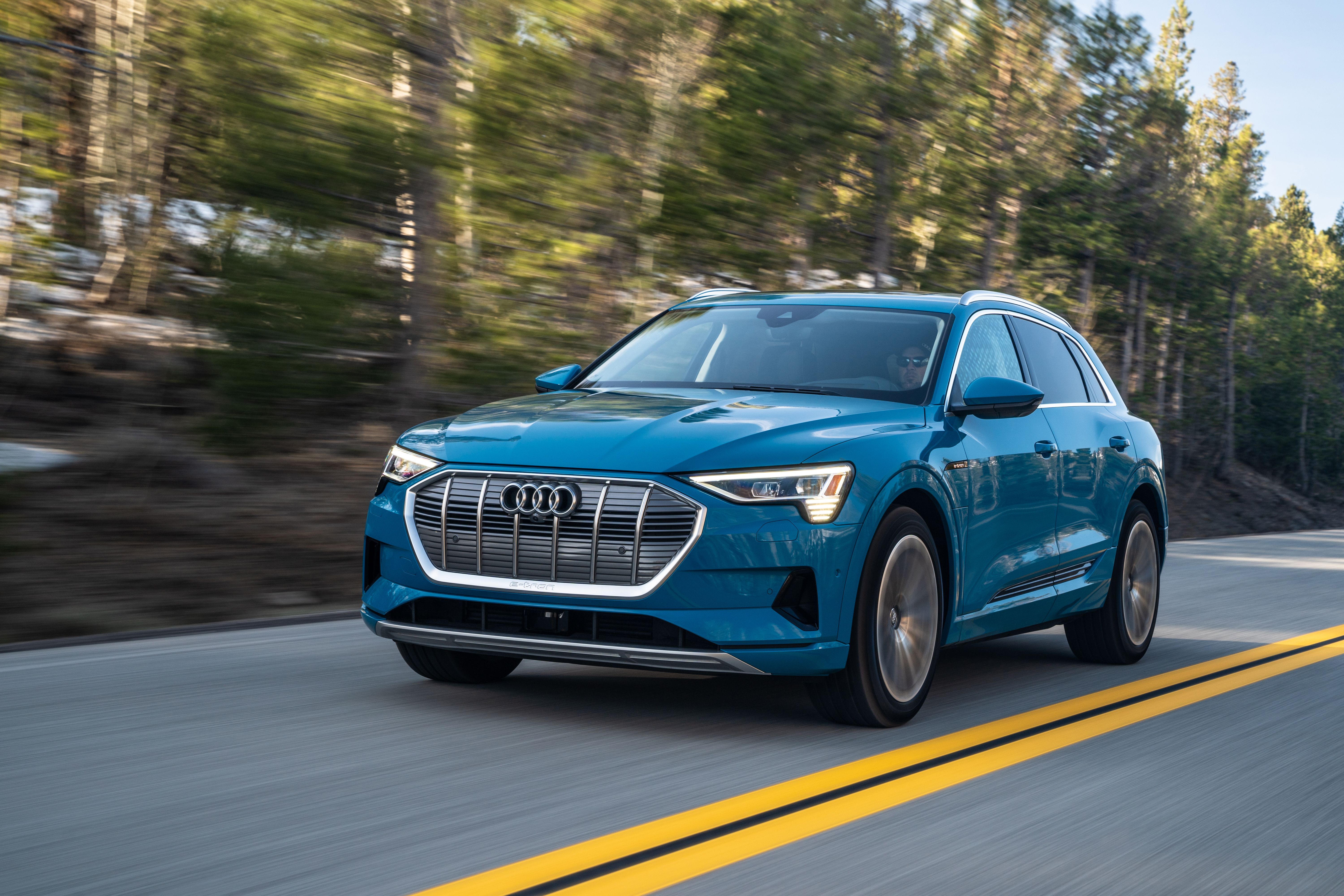The Audi E-Tron SUV and Sportback are fairly amazing vehicles. I love the fact that they are electric but still look like a modern-day car without all the funky futuristic crap that some automakers try to put in there. The way I see it, both are – for the most part – perfect transitional vehicles. They have lots of technology but don’t go overboard. They provide decent performance and comfort, two things you’d expect from Audi. But, they aren’t without their flaws, and the two biggest – pricing and range – are finally starting to be addressed. Both models will get a big drop in pricing, and the E-Tron SUV will see a slight jump in range, but I’m sad to say that it’s still not enough.
Audi Still Can’t Compete with the Best EVs Out There
Audi has officially announced that the 2021 E-Tron and E-Tron Sportback, in the U.S. Market, will see a rather massive drop in price. While this should help to push sales and convince people to give them a try, I fear it’s still not enough, but I’ll get to that in a minute. For now, let’s look at the pricing aspect.
For the 2019 model year, the E-Tron SUV started out at $74,800, which puts it deep into premium territory where it belongs to some extent, at least.
The 2021 Audi E-Tron Sportback will now start from $65,900 plus the obligatory $1,095 destinated charge.
This reduction in price should make both EVs more attainable to those on a loose budget, and it does open the door for Audi to offer sportier S and maybe even RS models. However, both models still suffer from rather subpar electric range. Audi has improved the E-Tron SUV a bit, but it’s still far from what you’ll get with a Tesla or even a Chevy Bolt, for that matter.
Audi managed to increase range for the E-Tron SUV by optimizing drive system hardware and making some kind of software tweaks. The highlight here is that the front motor can be disengaged when not needed to save power and can be reinitiated when you demand more power. Audi has also managed to increase the amount of available energy from the 95 kWh battery pack to 86.5 kWh with the battery buffer now rated at 8.5 kWh. What is a battery buffer?
So, the Audi E-Tron SUV has more range, but I’m still not happy. What the hell is wrong with me, right? Well, I’m one of those people that can see brands like Tesla, for example, offering as much as 400 miles of range or a car like the Chevy Bolt being capable of delivering 249 miles of range. I find it hard to swallow the Audi can’t even come close to that. For the sake of comparison, The Tesla Model S in performance trim offers 348 miles of range while the Long Range Plus model is rated at an EPA estimated 402 miles of range. The Tesla Model X, in the same trim levels, offers either 305 miles or 351 miles, respectively. Keep in mind that the Model X starts out at $79,990, so up until the 2021 model year, it was within cross-shopping range with the E-Tron. Even the smaller Model Y can give you 291 – 361 miles of range, and we’re talking about a purchase price of $49,990 for the Long-Range model and $59,990 for the Performance model.
I know that you’ll argue that a Tesla isn’t an Audi, but in terms of range and occasionally pricing, Tesla blows the Audi E-Tron out of the water. Audi might be a little more competitive now that it’s dropped some $9,000 off the entry-level price, but at the end of the day, the E-Tron – in either form – will have to stop and charge more frequently. In a world where our charging infrastructure isn’t quite widespread, this can make a big difference.
FAQ
Q: How Much Range Does the 2021 Audi E-Tron Have?
Audi has increased the E-Tron SUV’s range by 18 miles or 8.8-percent from 204 miles (328 lm) to 222 miles (357 km) compared to the 2019 model. The E-Tron Sportback, however, will carry on with the same 218 miles (351 km) that it was rated at for the 2020 model year.
Q: What is a battery buffer?
As Audi explains it, a battery buffer is basically a programming feature that keeps a certain percentage of battery power on standby, so to speak, to help increase longevity and sustain battery performance throughout the life of the vehicle.





